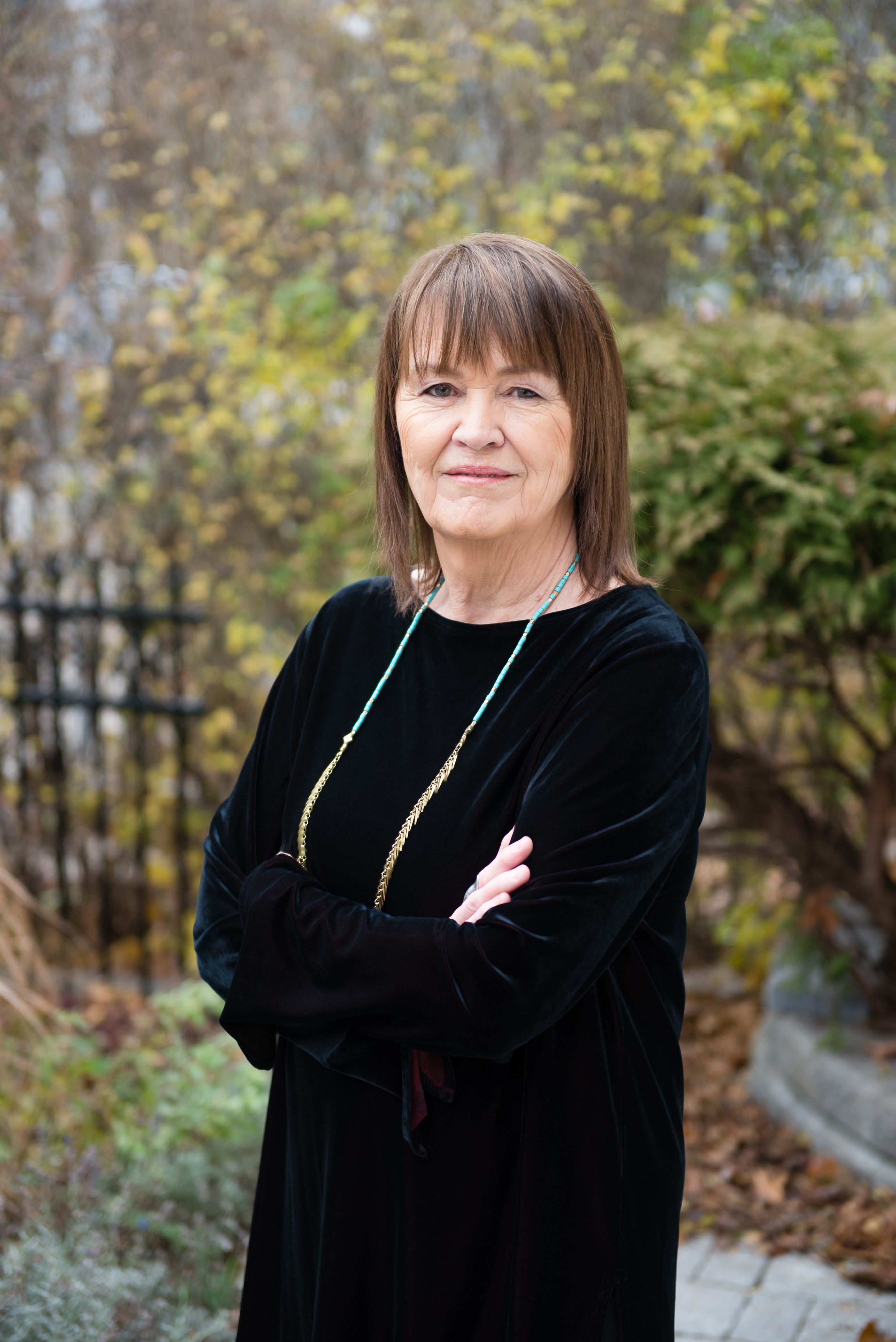Literary Journalism Alum Wins Taylor Non-Fiction Prize

It has been whirlwind few months for Rosemary Sullivan.
Stalin’s Daughter, the Toronto writer’s tragic biography of the infamous Soviet tyrant’s favoured child, took home both the B.C. National Award for Canadian Non-Fiction and the Hilary Weston Writers’ Trust Prize.
Now Sullivan, former chair of The Banff Centre’s literary journalism residency, can add another one to the tally: on Monday, Stalin’s Daughter won the prestigious RBC Taylor Prize. And its $25,000 purse.
“I was totally surprised. Overwhelmed,” Sullivan said Tuesday.
“I see it not as just an honour for my book, but a recognition of the subject matter,” she added.
Sullivan’s exploration of Svetlana Alliluyeva, nee Stalina, began with an obituary. Alliluyeva died in 2011 — 44 years after she first fled the Soviet Union and defected to the United States.
Sullivan, who has held some fascination for the Soviet Union since a visit in the late 1970s, had been looking for an ambitious project that she could throw her energy into. The idea of telling the story of Alliluyeva, a complex woman who left her father’s country but couldn’t escape his reputation, fit perfectly.
“It sort of felt like stepping off a cliff and hoping a rock would be there as a foothold,” she said.
Sullivan spent three-and-a-half years on the book — combing through government files from both sides of the Iron Curtain. She interviewed around 40 people, including the CIA handler that helped Alliluyeva defect, as well as her youngest daughter (Alliluyeva’s two older children cut ties with her when she left the U.S.S.R.).
“I had not idea of what type of woman I would encounter,” she said.
What Sullivan found was a woman who, in her own words, would forever be “a political prisoner” to her father’s name. Alliluyeva was an resilient, emotional woman — both highly intelligent and very impulsive. Alliluyeva fled the Soviet Union to India in 1967, before continuing on to the United States. There, she lived a life that was equal parts defector, political football and sideshow. She was suddenly thrust out from under the umbrella of the politburo and into the public eye.
Her life in the U.S. was filled with rocky relationships and restlessness. Everywhere she lived, she could hardly find space to be Svetlana Alliluyeva. Instead, she was Stalin’s daughter.
“She has this resilience, this optimism that kept driving her,” Sullivan says.
The friends she did have were eager to share her story with the biographer, hoping to shed light on the Alliluyeva that they knew. Sullivan felt the massive responsibility of telling Alliluyeva’s story, while not glossing over her human flaws.
“One has to be careful about letting their cliches and prejudices blind them to a person’s individuality.”
At one point in the process, Sullivan’s role moved from documenting Alliluyeva history to preserving it. She got a panicked phone call that told her correspondence between Alliluyeva and her close friend, Mary Burkett, was up for auction. Burkett had died in Britain, and the collection of hundreds of letters sent over their intimate friendship were on the block.
Sullivan convinced the auction house to let her make a bid by telephone. Sullivan ended up beating out another bidder (rumoured to be a Russian oligarch) and ended up donating the letters to the University of Toronto’s rare book collection.
Now, with the award win behind her, Sullivan faces another important task -- as the winner of the Taylor Prize, she is responsible for picking the recipient of its sibling award, the RBC Taylor Emerging Author. The winner will received a $10,000 prize and the chance to be mentored by Sullivan.
As an author who has been heavily involved with creative writing programs and helping young writers, that might be the best part of the prize.
"To know you can have a direct impact on someone's career, it's amazing," she said.
Sullivan was the faculty chair of the Banff Centre’s Literary Journalism residency for three years, from 2004 - 2006. Two other alums of the program were also nominated for the award: Ian Brown, current faculty chair, for Sixty: The Beginning of the End or the End of the Beginning and Camila Gibbs, who attended the program in 2000, for her memoir This is Happy.